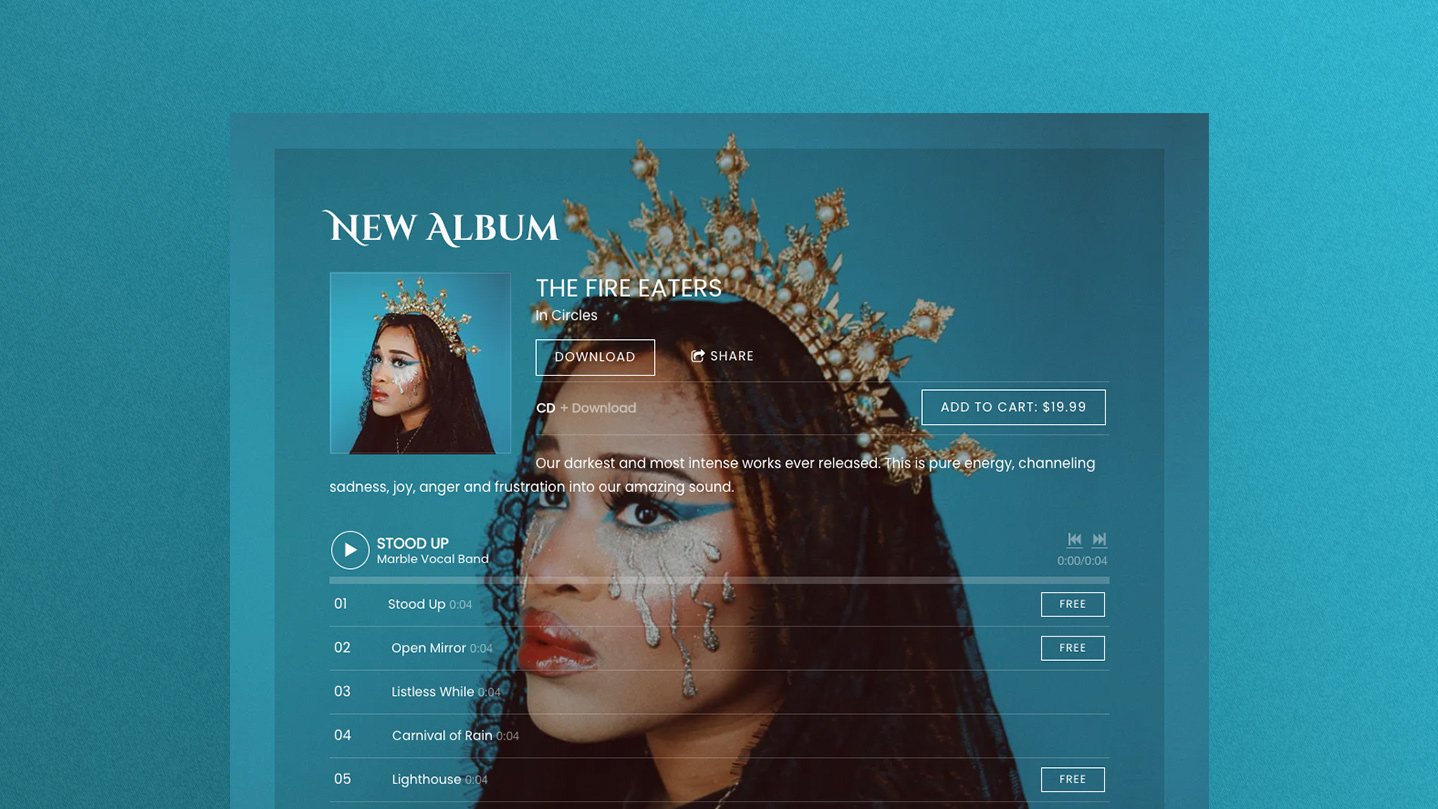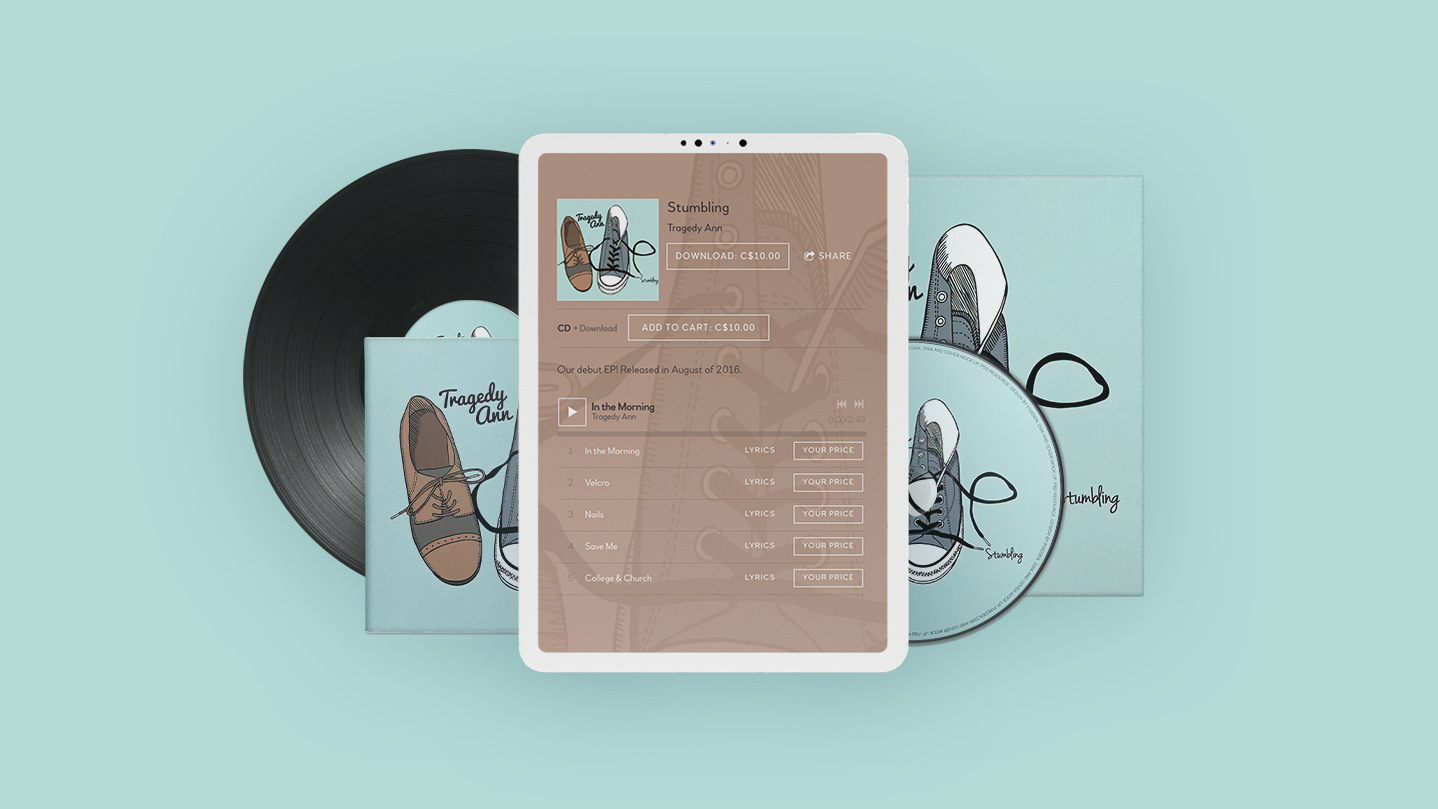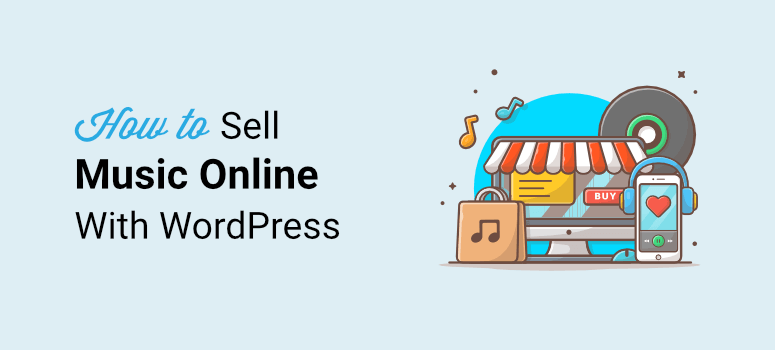To sell music online and make money, create high-quality music and distribute it through platforms like Spotify, Apple Music, and Bandcamp. Engage with your audience through social media and email marketing.
Selling music online offers a lucrative opportunity for artists to reach a global audience. With digital platforms, independent musicians can distribute their tracks without needing a record label. Social media and email marketing help build a loyal fanbase. Focus on producing high-quality music and utilizing platforms like Spotify, Apple Music, and Bandcamp to monetize your work.
Consistent engagement with your audience fosters a deeper connection and increases sales. By leveraging these tools, musicians can effectively sell their music and earn a substantial income.
Choosing The Right Platform
Choosing the right platform is key to selling music online. Platforms can impact your reach, revenue, and fan engagement. Each platform offers unique features and benefits. Understand these differences to maximize your earnings.
Streaming Services
Streaming services are popular for music consumption. They offer a large audience base. Key players include Spotify, Apple Music, and Amazon Music.
- Spotify: Known for its vast user base. Offers playlist placements and algorithmic recommendations.
- Apple Music: Integrates well with iOS devices. Provides robust analytics and user data.
- Amazon Music: Taps into Amazon’s massive customer base. Offers voice integration with Alexa.
Streaming services pay per stream. The rates vary by platform. Ensure your music reaches as many listeners as possible.
Digital Downloads
Digital downloads allow fans to own your music. Popular platforms include iTunes, Bandcamp, and Google Play Music.
- iTunes: Part of Apple’s ecosystem. Offers a large, dedicated user base.
- Bandcamp: Great for indie artists. Allows setting your own prices and keeps a fair revenue share.
- Google Play Music: Integrated with Android devices. Offers a straightforward purchase process.
Digital downloads often provide higher revenue per purchase. They cater to fans who prefer owning music files.
| Platform | Type | Revenue Model |
|---|---|---|
| Spotify | Streaming | Pay per stream |
| Apple Music | Streaming | Pay per stream |
| Amazon Music | Streaming | Pay per stream |
| iTunes | Digital Download | Revenue per sale |
| Bandcamp | Digital Download | Revenue per sale |
| Google Play Music | Digital Download | Revenue per sale |

Credit: bandzoogle.com
Creating Quality Music
Creating quality music is the first step to sell music online. High-quality music attracts listeners and builds a loyal fan base. Let’s dive into some essential tips for recording, mixing, and mastering your music.
Recording Tips
Recording your music well is crucial. Here are some tips:
- Choose the right environment: Record in a quiet space. This avoids background noise.
- Use quality equipment: Invest in a good microphone and audio interface.
- Test before recording: Check levels and sound quality before starting.
- Record multiple takes: Capture several takes to choose the best one.
Mixing And Mastering
Mixing and mastering are vital steps. They make your music sound professional.
- Balance your tracks: Ensure vocals and instruments are well balanced.
- Use EQ wisely: Equalize your tracks to enhance sound quality.
- Add effects carefully: Use reverb and delay to add depth. Do not overuse them.
- Master your track: Finalize your mix by adjusting the overall level and clarity.
By following these tips, your music will stand out and attract more listeners. Quality music is essential to sell music online and make money.
Building Your Brand
Create a strong online presence to sell music and boost your income. Utilize social media and streaming platforms effectively. Connect with fans directly for greater engagement and sales.
Logo And Artwork
Your logo is your brand’s visual identity. Ensure it’s memorable, reflects your music style, and stands out. Consistent artwork across platforms creates brand recognition. Use high-quality images that resonate with your audience.Social Media Presence
Engage with your audience on social media platforms. Share behind-the-scenes glimpses and personal stories. Interact with followers through comments and messages. Consistent posting helps to maintain and grow your fan base.Marketing Strategies
Marketing strategies are crucial for selling music online. Effective marketing can help you reach more listeners. Below are some key strategies to boost your sales.
Email Campaigns
Email campaigns are a powerful tool for reaching your audience. Build an email list of your fans. Send them regular updates about new releases, concerts, and promotions.
Here’s a simple way to structure your email campaigns:
| Step | Description |
|---|---|
| 1 | Collect emails through your website and social media. |
| 2 | Send personalized emails to your subscribers. |
| 3 | Offer exclusive content or discounts to your email list. |
Make sure your emails are engaging. Use eye-catching subject lines. Keep your content short and sweet. Always include a call to action.
Collaborations
Collaborations can help you reach new audiences. Partner with other musicians or influencers. You can create joint tracks, videos, or live performances.
Here are some collaboration ideas:
- Feature each other’s music on your social media.
- Co-host a live event or concert.
- Create a playlist featuring both artists.
Collaborations can be mutually beneficial. They introduce your music to new listeners. Choose partners who share your style and audience.
Networking is key. Attend industry events and connect with other artists. Building relationships can lead to more collaboration opportunities.
Utilizing Social Media
Utilizing social media is crucial for selling music online and making money. Social platforms help artists reach a global audience. They offer tools to engage fans and promote music effectively.
Content Creation
Creating engaging content is essential. Share behind-the-scenes videos, live performances, and music snippets. Use high-quality images for posts and profile pictures. Fans love to see the creative process.
- Post regularly to keep your audience engaged.
- Use stories and reels for short, engaging content.
- Share your music journey and personal stories.
Collaborate with other artists. This expands your reach. Create content that reflects your brand and music style.
Engagement Techniques
Engaging with your audience builds loyalty. Respond to comments and messages. Ask questions in your posts to encourage interaction.
- Host live sessions to connect with fans.
- Run contests and giveaways to boost engagement.
- Feature fan art and covers on your profile.
Use polls and quizzes in stories. This keeps fans involved. Share user-generated content to show appreciation.
Here’s a quick table summarizing engagement techniques:
| Technique | Description |
|---|---|
| Live Sessions | Connect in real-time with fans. |
| Contests & Giveaways | Boost engagement through rewards. |
| Fan Features | Showcase fan art and covers. |
These techniques help you build a strong fan base. A loyal fan base supports your music journey. Social media is a powerful tool. Use it wisely to sell music online and make money.

Credit: bandzoogle.com
Monetizing Your Music
Turning your music into a source of income is possible. You need to explore various methods. This section will guide you through some key strategies.
Merchandising
Merchandising can boost your income. Sell products related to your music. Fans love to buy items that connect them to your work.
Here are some popular merchandise items:
- T-shirts with your band logo
- Hoodies featuring album artwork
- Posters with your concert dates
- Stickers and pins for fans to collect
Set up an online store. Websites like Shopify make it easy. Promote your merchandise during concerts and online.
Crowdfunding
Crowdfunding is another way to monetize your music. Platforms like Kickstarter and Patreon help. You can get financial support from fans before releasing your music.
Follow these steps to start a crowdfunding campaign:
- Create a compelling campaign page.
- Offer exclusive rewards for backers.
- Share your campaign on social media.
- Engage with your backers regularly.
Use crowdfunding to fund new projects. This method builds a strong connection with your fans.
Managing Distribution
Selling music online can be very profitable. Managing distribution is key to reaching your audience. Distribution involves getting your music on popular platforms. This will help you make money from your music. Let’s explore how you can do this effectively.
Aggregators
Aggregators help you distribute your music to multiple platforms. They work as middlemen between you and music stores. Popular aggregators include TuneCore, CD Baby, and DistroKid.
| Aggregator | Features | Cost |
|---|---|---|
| TuneCore | Worldwide distribution, royalty collection | $9.99 per single |
| CD Baby | Global reach, physical distribution | $9.95 per single |
| DistroKid | Unlimited uploads, 100% royalties | $19.99 per year |
Using an aggregator simplifies the process. You upload your music once. The aggregator distributes it to many platforms. This includes Spotify, Apple Music, and Amazon.
Direct Sales
Direct sales allow you to sell music straight to your fans. You keep more of your earnings this way. Use platforms like Bandcamp or your own website.
- Bandcamp: Easy to use, fans can pay what they want.
- Own Website: Full control, no middleman fees.
With direct sales, you have better control over pricing. You can set your own terms. This approach helps you build a closer relationship with your fans.
To set up direct sales, create a user-friendly website. Make sure it has a simple purchase process. Offer different formats like MP3 and FLAC.
Consider offering exclusive content. This could be bonus tracks or signed merchandise. Fans love special perks and will often pay more for them.

Credit: www.isitwp.com
Protecting Your Work
When selling music online, protect your work from misuse. Proper protection ensures you earn from your creations. This section covers important steps for safeguarding your music.
Copyrights
Copyrights give you legal rights to your music. Registering your music ensures you own it. This prevents others from using it without permission.
Follow these steps to copyright your music:
- Create an original piece of music.
- Document your music creation process.
- Register your music with a copyright office.
Registering helps in legal disputes. It proves you own the music.
Licensing
Licensing allows others to use your music. It ensures you get paid for its use. Licensing can be for different purposes.
Common types of licenses include:
- Mechanical License: For reproducing and distributing your music.
- Performance License: For public performances of your music.
- Synchronization License: For using your music in videos.
Use a licensing agency to manage your licenses. They handle legal details and negotiations.
Protecting your work is crucial. Copyrights and licensing ensure you get paid. Secure your creations and monetize your music safely.
Tracking Your Success
Tracking your success is crucial when selling music online. It helps you understand what works and what doesn’t. You can make informed decisions and boost your sales. Let’s dive into how you can track your success.
Analytics Tools
Using analytics tools can help you monitor your progress. These tools provide insights into your audience and sales. Here are some popular tools you can use:
- Google Analytics: Tracks website traffic and user behavior.
- Spotify for Artists: Provides streaming data and audience insights.
- Bandcamp Stats: Monitors sales and track plays on Bandcamp.
These tools help you understand your audience better. You can see which songs are popular and where your listeners are from. This information is vital for planning your next steps.
Adjusting Strategies
Adjusting your strategies is essential to improve your sales. Use the data from analytics tools to make changes. Here are some ways to adjust your strategies:
- Focus on Popular Tracks: Promote the songs that get the most plays.
- Target Specific Regions: Plan tours or ads in areas with many listeners.
- Optimize Release Times: Release new music when your audience is most active.
Making these adjustments can help you reach more fans. It can also increase your sales and streams. Remember to review your data regularly. This way, you can keep improving your strategies.
Frequently Asked Questions
How Much Do You Make Selling Music Online?
Earnings from selling music online vary. Independent artists can make anywhere from a few dollars to thousands per month. Factors include platform, promotion, and fan base.
How Do Beginners Sell Music?
Beginners can sell music by using online platforms like Bandcamp, SoundCloud, or social media channels. Create a strong online presence, engage with fans, and consider selling merchandise alongside your music. Networking with other musicians and promoting your work through live performances can also help boost sales.
How Much Do You Make For Selling A Song?
Earnings from selling a song vary widely. Factors include your contract, royalties, and sales. Independent artists might earn $0. 70 per download.
How Do You Sell Your Music And Get Paid?
Sell your music on platforms like Spotify, Apple Music, and Bandcamp. Distribute through services like DistroKid or TuneCore. Get paid through royalties and direct sales. Promote on social media for more exposure.
How Can I Start Selling Music Online?
To start selling music online, create digital tracks, choose a platform, set prices, and promote.
What Are The Best Online Platforms For Selling Music?
Popular platforms include Bandcamp, Spotify, Apple Music, Amazon Music, and Google Play Music.
Is It Necessary To Copyright My Music Before Selling Online?
Yes, it’s crucial to copyright your music to protect your work and ensure you receive royalties.
How Can I Promote My Music Effectively Online?
Promote your music through social media, email marketing, collaborations, music blogs, and live performances.
What Are The Key Factors For Successful Online Music Sales?
Quality music, engaging album art, effective promotion, fan engagement, and a user-friendly platform are crucial.
How Do I Set Competitive Prices For My Music Online?
Research the market, consider production costs, evaluate demand, and offer competitive pricing to attract buyers.
Conclusion
Selling music online offers endless opportunities. Leverage social media, streaming platforms, and direct sales to maximize earnings. Engage with your audience consistently. Keep track of trends and adapt your strategies. With dedication and creativity, you can successfully monetize your music and grow your fanbase.
Start today and watch your music career flourish.